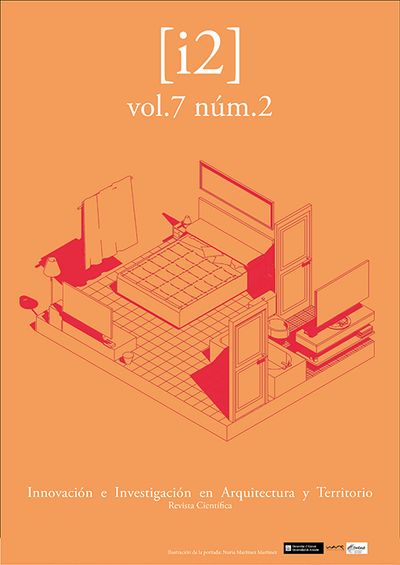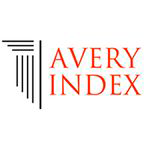Digitropismo Urbano. Una taxonomía de las redes digitales inductoras de cambios direccionales en el espacio urbano
DOI:
https://doi.org/10.14198/i2.2019.2.07Palabras clave:
Planeamiento urbano, Participación ciudadana, Big Data, Espacio público, Smart CityResumen
Las Tecnologías de la Información y de la Comunicación, han entrado en nuestro modo de vida de forma sigilosa, pero con una fuerza incuestionable. En este artículo analizamos como los ciudadanos, de forma consciente o inconsciente, somos los encargados de activar la Red y los dispositivos tecnológicos que están estimulando cambios direccionales de la ciudad, fenómeno que hemos denominado digitropismo urbano. Para una mejor comprensión del tema, tras la contextualización del fenómeno, realizamos una taxonomía a partir de la clasificación de las redes que actúan sobre la ciudad y sus repercusiones sobre el espacio físico. En primer lugar, hemos procedido a analizar las redes basadas en la participación pasiva del individuo en las transformaciones urbanas, para luego estudiar un conjunto de redes emergentes que facilitan la participación activa del individuo en los cambios direccionales de la ciudad. Esta clasificación, nos permitió determinar un primer grupo de transformaciones que están induciendo a la gentrificación, al desplazamiento y a la ampliación de flujos urbanos, que consecuentemente producen cambios físicos y de identidad de los lugares. Además, detectamos un segundo grupo de transformaciones, capaces de estimular la regeneración y la creación de nuevos espacios urbanos. Para finalizar, concluimos con la propuesta de una agenda de investigación sobre el digitropismo urbano.
Citas
ALEXANDER, Christopher. A new theory of urban design, Oxford University Press, Londres, 1987. ISBN: 9780195037531
ALPERS, Svetlana. El Arte de Describir, el arte Holandés del siglo XVII. Hermann Blume. Segunda edición, Madrid, 1987, p.133. ISBN 10: 9874509872
ASCHER, François. Ciudades con velocidad y movilidad múltiples: un desafío para los arquitectos, urbanistas y políticos [en línea] [ref. 25 de octubre de 2016].Disponible en web: http://www.redalyc.org/pdf/375/37506002.pdf
BATTY, Michael. The new science of the city. MIT Press, Cambridge, Massachusetts, London, England, 2013. ISBN: 9780262534567
BERGEVOET, Tom; VAN TUIJL, Maarten. The Flexible City. Sustainable Solutions for a Europe in Transition. Nai010 publis-hers, Rotterdam, 2016. ISBN: 9789462082878
BRANSON, Steve, WEGNER, Jan Dirk, HALL David, LANG, Nico, SCHINDLER Konrad, PERONA Pietro. From Google Maps to a fine-grained catalog of street trees , ISPRS Journal of Photogrammetry and Remote Sensing 135, Elsevier, 2018, 13-30. ISSN 0924-2716. https://doi.org/10.1016/j.isprsjprs.2017.11.008
BULLOCK, Craig, BRERETON, Finbarr, BAILEY Sive. The economic contribution of public bike-share to the sustainability and efficient functioning of cities, Sustainable Cities and Society 28, Elsevier (2017) p.76-87 ISSN: 2216707. https://doi.org/10.1016/j.scs.2016.08.024
CAPEL SÁEZ, Horacio. Filosofía y ciencia en la geografía contemporánea. Barcanova, Barcelona.1981. Capítulo XII, p.367-385.
CERRONE, D. Urban Meta-Morphology. Digital Traces Lab 2016 [en línea]. Saint Petersburg. pdf [ref. 1 de Julio de 2018] Disponible en: https://eu.spb.ru/digitaltraces2016/main.
CRANG, Mike; GRAHAM, Stephen. Sentient Cities Ambient intelligence and the politics of urban spaces, Information, Comuni-cation & Society 2007 [en línea] [ref. 5 de junio de 2018]. https://doi.org/10.1080/13691180701750991
CRANSHAW, J., SCHWARTZ, R., HONG, J. y SADEH, N. The Livehoods Project: Utilizing social media to understand the dynamics of a city. Sixth International AAAI Conference on Weblogs and Social Media. AAAI Publications. 2012.
DE WAAL, Martijn. De Stad als Interface. Hoe niewe media de stad veranderen, Nai010 Uitgevers, Rotterdam, 2013. ISBN 9789462080492
DE WAAL, Martijn. "The Urban culture of sentient cities: from an internet of things to a public sphere of things", en AA.VV.: Sen-tient city ubiquitous computing, architecture, and the future of urban space, MIT Press / The Architectural League of New York, Cambridge, Massachusetts, 2011, p. 190. ISBN: 9780262515863
DUNKEL, A. Visualizing the perceived environment using crowdsourced photo geodata. Landscape and Urban Planning [en línea], 2015. vol. 142, pp. 173-186. ISSN 01692046. DOI 10.1016/j.landurbplan.2015.02.022. Disponible en: http://dx.doi.org/10.1016/j.landurbplan.2015.02.022.
EASTERLING, Keller. The action is the form, en Sentient city ubiquitous computing, architecture, and the future of urban space, MIT Press / The Architectural League of New York, Cambridge, Massachusetts, 2011, p. 158.ISBN: 9780262515863
FERNANDEZ GONZÁLEZ, Manuel. La Smart City como imaginario Socio-Tecnológico. La construcción de la utopía urbana digital, Director: Imanol Zubero Beaskoetxea .Universidad del País Vasco, 2015 p 303. https://doi.org/10.20868/ciur.2016.109.3498
GALLOWAY, Anne. Locating Media Futures in the Present, or How to Map Emergen Associations & Expectations, Northridge, California, The Center for Geographic Studies, Aether Vol. V.A, XX-XX, 2010. [En línea] Disponible en web: http://geogdata.csun.edu/~aether/pdf/volume_05a/galloway.pdf [ref. 3 de Julio de 2013]
GALLOWAY, Anne. Technosocial devices of everyday life, Architecture & Situated Technologies, Lecture 9-10 October, 2006, Urban Center, NYC [en línea] [ref. 29 de Marzo de 2018] Disponible en web: http://www.purselipsquarejaw.org/papers/galloway_situatedtech.pdf
GOLBERGER, Paul. Disconnected Urbanism [en línea] http://www.metropolismag.com/December-1969/Disconnected-Urbanism/ Citado por DE WAAL, Martijn: De Stad als Interface, Hoe niewe media de stad veranderen, op. cit., p. 5.
HARVEY, David. Rebel Cities: From the Right to the City to the Urban Revolution. London: Verso, 2012.
HILL, Dan. The street as Platform, City of Sound [en línea] [ref. 6 de abril de 2018]. Disponible en web: http://www.cityofsound.com/blog/2008/02/the-street-as-p.html
IDC España. Análisis de las ciudades Inteligentes en España [en línea] [ref. 1 de Agosto de 2016].Disponible en web: https://www.aeiciberseguridad.es/descargas/categoria6/8883484.pdf
JACOBS, Jane. The Death and Life of Great American Cities (1961), Random House, New York, 1993. ISBN:9780679741954
JARA, Antonio J., Genoud, Dominique, Bocchi, Yann. Short paper: Sensors data fusion for Smart Cities with KNIME: A real experience in the SmartSantander, 2014, Testbed. https://doi.org/10.1109/WF-IoT.2014.6803145
JIN, Scarlett, KONG Hui, WU Rachel, SUI, Daniel. Ridesourcing, the sharing economy, and the future of cities. Cities 76, Elsevier, 2018, 96-104. https://doi.org/10.1016/j.cities.2018.01.012
KIBUM Kima,CHULWOO Baekb,LEEC Jeong-Dong. Creative destruction of the sharing economy in action: The case of Uber.Transportation Research Part A: Policy and Practice. Volume 110, issue C, Elsevier, 2018, p 118-127. https://EconPapers.repec.org/RePEc:eee:transa:v:110:y:2018:i:c:p:118-127. https://doi.org/10.1016/j.tra.2018.01.014
LYNCH, Kevin. La imagen de la Ciudad (1960), Gustavo Gili, Barcelona, 2001. ISBN: 9788425228278
MINGUÉNS, Joana, BAGGIO,Rodolfo, COSTA, Carlos. Social media and Tourism Destinations: TripAdvisor Case Study
IASK ATR2008 (Advances in Tourism Research 2008), Aveiro, Portugal, 2008. https://www.iby.it/turismo/papers/baggio-aveiro2.pdf
McCULLOUGH, Malcolm. Ambient commons. Attention in the age of embodied information, MIT Press, Cambridge, Massa-chusetts, 2014. ISBN: 9780262018807. https://doi.org/10.7551/mitpress/8947.001.0001
McLAREN, Duncan; AGYEMAN, Julian. Sharing Cities. A Case for Truly Smart and Sustainable Cities. MIT Press, Cambridge, Massachusetts, London, England. 2015. ISBN: 9780262533713. https://doi.org/10.7551/mitpress/9780262029728.001.0001
MARTí, P., SERRANO, L. y NOLASCO, A., Using locative social media and urban cartographies to identify and locate suc-cessful urban plazas. Cities, 2017, 64, 66-78. http://dx.doi.org/10.1016/j.cities.2017.02.007.
MORALES PEREZ, Soledad; PACHECO BERNAL,Carmen. Cuando la Música cesa: el papel de los festivales culturales en la creación de espacio urbano, Documents d'Anàlisi Geogràfica 2018, vol. 64/2 p 271-289. ISSN 0212-1573. https://doi.org/10.5565/rev/dag.427
MULLER Catherine, CHAPMAN Lee, GRIMMOND C. S. B, YOUNG Duick, CAIA Xiaoming. Review Sensors and the city: a review of urban meteorological networks, INTERNATIONAL JOURNAL OF CLIMATOLOGY, 2013, Int. J. Climatol. 33: 1585-1600. https://doi.org/10.1002/joc.3678
NOLD, Christian; VAN KRANENBURG, Rob. The Internet of People for a Post-Oil World. Situated Technologies Pamphlets 8, The Architectural League of New York, New York, 2011, p.31.
OFFENHUBER, Dietmar, RATTI, Carlo. Decoding the City.Urbanism in the Age of Big Data. Birkhäuser Verlag GmbH,Basel, 2014.ISBN: 9783038215974
https://doi.org/10.1515/9783038213925
PARK, Robert."The City: Suggestions for the Investigation of Human Behavior in the Urban Environment", en PARK, R; BUR-GESS, E, y McKENCIE, R: The City [en línea] [ref. 1 de octubre de 2016]. Disponible en web: http://www.esperdy.net/wp-content/uploads/2009/09/Park-The-City.pdf
PETTERSSON, Fredrik, WINSLOTT HISELIUS, Lena & KOGLIN, Till. E-commerce and urban planning comparing knowledge claims in research and planning practice, Urban, Planning and Transport Research, 2018,6:1, 1-21, https://doi.org/10.1080/21650020.2018.1428114
RATTI, Carlo; TOWNSEND, Anthony. The Social Nexus, Scientific American [en línea] [ref. 15 de julio de 2015]. Disponible en web: http://senseable.mit.edu/papers/pdf/2011_Ratti_Townsend_Nexus_SA.pdf
RICCI, Miriam. Bike sharing: A review of evidence on impacts and processes of implementation and operation. Research in Transportation Business & Management, 2015, p. 28-38. ISSN 2210-5395. https://doi.org/10.1016/j.rtbm.2015.03.003
SASSEN, Saskia [en línea] [ref. 28 de julio de 2016]. Disponible en web: http://urbanadigital.com/2011/07/27/entrevista-con-saskia-sassen-urbanismo-de-codigo-abierto-y-urbanizacion-de-la-tecnologia-sobre-smart-cities/#more-572
SASSEN, Saskia. Database Cities to Urban stories [en línea] [ref. 12 de mayo de 2013].Disponible en web: https://www.youtube.com/watch?feature=player_embedded&v=mXTSO28VGYU
SHEPARD, Mark. Sentient City.Ubiquitous Computing, Architecture and the Future of Urban Space, MIT Press, Cambridge, 2011.ISBN: 9780262515863
SHELTON, Taylor, POORTHAUIS, Ate, ZOOK Matthew. Social media and the city: Rethinking urban socio-spatial inequality using user-generated geographic information, Landscape and Urban Planning 142 Elsevier, 2015, 198-211. https://doi.org/10.1016/j.landurbplan.2015.02.020
TOWNSEND, Anthony. Smart Cities. Big data, civic hackers and the quest for new utopia. W. W. Norton & Co, New York, 2013. ISBN: 978393082876
LEMOS, André. Medios Locativos y Territorios informativos. Comunicación móvil y nuevos sentidos de los lugares. 2008, Una crítica sobre la espacialización en la cibercultura, [en línea] [ref. 12 de mayo de 2017]. https://es.scribd.com/doc/57869752/Andre-Lemos-Medios-Locativos-y-Territorios-Informativos op cit., p. 27.
LOPEZ-BAEZA, Jesús, SERRANO-ESTRADA, Leticia, NOLASCO-CIRUGEDA, Almudena. Percepción y uso social de una transformación urbana a través del social media. Las setas gigantes de la calle San Francisco, Innovación e Investi-gación en Arquitectura y Territorio. Departamento de Expresión Gráfica y Cartografía. Arquitectura. Escuela Politécnica Superior. Universidad de Alicante. Nº5 diciembre, 2016. ISSN: 2341-0515. https://doi.org/10.14198/i2.2016.5.03
WACHSMUTH, David, WEISLER, Alexander. Airbnb and the Rent Gap: Gentrification Through the Sharing Economy. Envi-ronment and Planning A: Economy and Space. 2018. https://doi.org/10.1177/0308518X18778038.
WHYTE, William H. The social life of small urban spaces, The Conservation Foundation, Washington, 1980. ISBN: 9780970632418
XIAOJIANG, li, RATTI, Carlo. Mapping the spatio-temporal distribution of solar radiation within street canyons of Boston using Google Street View panoramas and building height model. Landscape and Urban Planning, Elsevier, 2018, https://doi.org/10.1016/j.landurbplan.2018.07.011
Descargas
Estadísticas
Publicado
Cómo citar
Número
Sección
Licencia
Derechos de autor 2019 Esther González-Aurignac, Rafael Temes Cordovez

Esta obra está bajo una licencia internacional Creative Commons Atribución 4.0.







